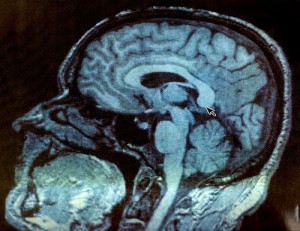5 Essential Tips for Creating Healthy Paleo Habits
 Have you ever felt like you’ve been trying forever to reach the same goal? Like you’re constantly struggling to stay on track – occasionally making progress – but often stalling or regressing? Maybe you lose a little weight only to regain it, or you eat healthier for a while only to cheat for a week or 2?
Have you ever felt like you’ve been trying forever to reach the same goal? Like you’re constantly struggling to stay on track – occasionally making progress – but often stalling or regressing? Maybe you lose a little weight only to regain it, or you eat healthier for a while only to cheat for a week or 2?
Most of us don’t like to talk about the constant ebb and flow struggle to eat healthy and get in shape, because it makes us feel like failures for never reaching our goals. It’s a situation that almost everyone faces, but unfortunately, it’s an issue that very few people solve.
I’d go so far as to say that it’s the normal condition for most people to never actually reach 99% of their health and fitness goals.
Whether you’ve been trying to lose 50 pounds for the last decade or have been dreaming about having six-pack abs since high school, it’s frustrating, depressing, and painful to never achieve our long term health goals.
There’s a Missing Link
Most books, articles, and podcasts (Paleo or otherwise) try to educate us about the best ways to eat, exercise, and live. And that’s important. I’ve been Paleo for a very long time, and I still read and listen to Paleo experts so that I can find ways to get even healthier.
But there’s a huge problem… It’s a problem so big that I call it the Missing Link, since most people go their entire lives without ever figuring it out.
So what is the Missing Link???
Simply, most of us don’t know how to CREATE HEALTHY HABITS.
This is not just a Paleo problem. In fact, it’s not just a health problem. The inability to intentionally create habits effects every part of our lives.
Fortunately, some of the most amazing, fascinating, and useful scientific advances in the past few decades have actually been made in the behavioral sciences – particularly with respect to motivation and habit formation. We don’t hear about these advances as much as we hear about nutritional and medical studies, but they may actually be more important to our overall well-being.
Learning to create habits (which anyone can learn) will allow you to literally revolutionize the way you live.
And the majority of this article is going to address the basics of learning to create habits. But there’s one thing that you need to understand before you can start creating habits.
Motivation is a Myth
 To be fair, motivation exists. However, the way we usually think of motivation is entirely useless.
To be fair, motivation exists. However, the way we usually think of motivation is entirely useless.
Typically, when you or I don’t do something that we know we should do, we say that we’re either lazy or else just didn’t have enough motivation to do it.
For instance, most smokers know that they should quit for a variety of health reasons. Likewise, even people who aren’t Paleo know that they should eat fewer cookies and less cake. However, there are still a lot of smokers and cookie-eaters.
In both cases, we say that they’re too lazy or unmotivated to put forth the effort required to quit smoking or to eat better. But there’s a catch…
Motivation and Willpower are physically limited.
Physically limited. (It’s worth repeating a few times to burn into our understanding.)
Just like each of us can only complete a certain number of push-ups at one time, we can also only exert so much motivation or willpower. And when we try to be motivated to do or change more things, we use up our limited supply of motivation more quickly.
A Story
I love interesting studies. Here is one of my favorites:
One-by-one, people were brought into either Room A or Room B. In Room A, there was a table with some food that wasn’t particularly appetizing (think bland vegetables). In Room B on the other hand, there was a table loaded with freshly baked chocolate chip cookies.
In both cases, the person was told to wait in the room for a while, and they were told not to eat anything (and they complied). After a while, the examiner came back and asked the individual to try to complete a puzzle (which, unbeknownst to the participant, actually had no solution).
Since it had no solution, obviously no one actually solved the puzzle, but the people who were in the vegetable room (Room A) spent much more time trying to solve the puzzle. On the other hand, people who were forced to resist eating the delicious-smelling cookies had already used up much of their willpower and therefore spent much less time trying to complete the puzzle.
Were the individuals who resisted eating the cookies lazier? Of course not. However, if you looked just at their effort on the puzzle, that’s the conclusion that you’d draw. They had simply used up most of their motivation before even starting the puzzle, and they’d had no time or way to replenish it.
How Habits can Help Us Avoid the Motivation Trap
There’s an evolutionary reason that our motivation is limited. Making conscious decisions actually takes energy. And, for most of human history, food and energy were pretty limited. Consequently, our brains evolved (very haphazardly) to be able to function most of the time without needing to make decisions.
It’s actually a pretty amazing process…
What is a Habit? In the simplest terms possible, a habit is an action that requires little or no conscious decision.
For instance, when we brush our teeth, we don’t make continual decisions about which tooth to brush next or how to move our hand to create a brushing motion. Maybe we did when we were 4 years old for a couple of weeks, but ever since, we’ve done it by habit.
Habits can also be more complicated.
When you back your car out of a parking place or your driveway, you probably don’t consciously think about which way to turn the wheel or when to press the gas or brakes. Another set of habitual actions.
It’s pretty amazing when you think about it. Most of the actions we take throughout a day don’t actually require conscious thoughts or decisions. There’s a very small part of our brain that learns to trigger actions based on the circumstances we’re in.
That’s the good news. But there’s also a bit of bad news:
Almost nobody is good at consciously creating new habits.
We create habits continually throughout our lives, but 99% are by accident. I’m pretty sure none of us intended to create the habits necessary to move our hands or feet when brushing our teeth or backing a car out of a driveway. They’re useful habits, but they’re accidents. And guess what?
It’s also easy to accidentally create BAD habits.
This is pretty obvious to most of us, particularly since we seem to always be fighting against bad eating habits. That bagel or sugary cereal you used to or still do eat every morning? Probably not a habit that you wish you had ever cultivated.
So how are we supposed to go about creating new, good habits?
The Secret to Creating New Habits
 There’s something I haven’t yet told you about habits. I defined a habit as an action taken with little or no conscious decision, but there are actually 2 other parts of a habit:
There’s something I haven’t yet told you about habits. I defined a habit as an action taken with little or no conscious decision, but there are actually 2 other parts of a habit:
1. A Trigger; and
2. A Reward.
If you want to create a new habit or change an old one, then you can’t just focus on the behavior you want. It’s almost impossible to wake up one morning and decide that you’re going to eat meat and vegetables every day for lunch. It might work for a week or 2, but to make it stick as a habit requires a lot more than simply deciding on a course of action.
Triggers – Each habit has a trigger that tells your brain when it’s time to initiate the habit. Eating a bagel in the morning could be triggered by any number of factors. It could be a particular time of morning, it could be brushing your hair, since you eat the bagel immediately after you brush your hair, or it could be driving past the bagel shop where you buy it.
The point is, there is something that tells your brain that it’s time to eat the bagel, and that something can be a time, a place, an event, or anything else.
Rewards – Every habit also requires a reward, which is usually easier to pinpoint and understand. In the case of a bagel (and most food), there are basic hormonal responses that make us feel good while eating the food, even when it’s not healthy for us. Rewards can be almost anything, but they’re typically easier to identify than triggers.
To Create a Habit, You MUST Establish a Trigger and a Reward
 Here’s where the rubber hits the road if you actually want to get healthy.
Here’s where the rubber hits the road if you actually want to get healthy.
Let’s say that you want to eat more vegetables, since most of us agree (even despite our love of meat) that vegetables are a pretty vital part of a healthy Paleo diet.
You could just try to motivate yourself each day or each meal to eat more vegetables. Good luck. Most of us have been trying that for decades with levels of success that aren’t exactly stellar.
Or, you could start by establishing a habit. Ideally, you’ll start very small with something that is easily manageable, such as eating 2 bites of spinach or kale every morning.
In order to be sustainable as a habit, though, it’s crucial that you also establish a trigger and reward.
In this case, your trigger would need to be something that happens every morning. Maybe you pack a lunch every morning. You probably (and hopefully) brush your teeth every morning. Whatever it is you do, choose an event and perform the action you want to become a habit immediately after that event.
You’re also going to need a reward. For some of us, we actually might get enough psychological benefit from simply performing the act, but it’s not enough for everyone. If you need an external reward, it needs to occur immediately after you perform the desired habit. Maybe you enjoy relaxing in the morning and watching a few minutes of a morning television show. If so, use that to your advantage and make that your reward for eating your 2 bites of spinach or kale.
In our hypothetical example, if you ate spinach or kale every single morning, immediately after brushing your teeth, and then immediately rewarded yourself with 5 minutes of TV, then after just 3-5 weeks, your mind would actually start craving spinach or kale every morning when you brush your teeth. It’s not necessary to get too much into the science, but your brain is pretty cool when it comes to learning that certain actions produce desired rewards.
Obviously, this is just one example, and I’m not saying you need to start by eating spinach or kale every morning. The point is that creating a habit, for your health or otherwise, is not complicated and doesn’t need to be difficult, but you MUST start small and build in a trigger and a reward.
Really Really Important Tips
There’s about a million bits of advice that I could give, mostly because I’ve failed at creating habits in every way possible. (I learn slowly.) Here are 5 super-important tips to start with:
1. Start with One Habit – It took me a decade to learn this lesson, and if you remember nothing else from this article, remember this. Create ONE habit at a time! Even people who understand how to create habits often screw this up. Most of us feel like we need to get healthier and look better in a matter of weeks, so we try to create about 182 habits all at once. You’ll fail. Believe me. Remind yourself that you have time, and think of what you can accomplish over the course of a year with just 9-12 new healthy habits.
2. Start Small – It’s worth repeating. Whatever habit you choose to implement should be very small. If you want to exercise more, make a commitment to 5 minutes of pushups and squats per day (as an example). Whatever it is, if you start big, you’re dooming yourself in the long run, b/c there is almost no way you’ll be able to keep up a big commitment every single day in the early going.
3. Don’t Try to Eliminate or Change Bad Habits – This is another topic entirely, and it’s possible to change unwanted habits by replacing them with good habits. While it sounds simple, replacing habits is significantly tougher than creating new habits. If you want to eat less processed junk, start by creating habits of eating whole, clean food, and that will naturally start to crowd out some of the junk. Don’t worry about replacing bad habits until you’ve gotten very good at creating new habits.
4. There is No Right (or Wrong) Starting Place – Don’t waste time and energy trying to figure out which habits are most important to start with. Wasting time that way just means that you still believe that you need to change things quickly. Pick something and start forming habits. It’s more important to learn how to form habits than it is to form any one particular habit. All of that said, if I had to recommend 2 places to start, it would be with 5 minutes of meditation per day or with 5 minutes of pushups and squats. They’re easy habits to start with, and they have significant psychological effects.
5. Don’t Limit Habit Formation to Only Paleo Habits – I’m obsessed with how I eat and exercise, so I made this mistake for a long time. There are tons of great Paleo-esque habits you can develop (moving around more, getting outside, destressing through play, eating better food, etc.), but you should also use this opportunity to improve your life in other ways. Occasionally throw in an unrelated habit. As I said above, I highly suggest throwing in 5 minutes of meditation in the early going, but you can pick pretty much anything.
A Final Word of Warning
The whole point of creating habits is that they do the work for you once you create them. Kinda like everybody always wants passive income, think of this as your ticket to passive health. Once you have many healthy habits in place, you won’t have to worry about making bad decisions, because you by and large won’t be making decisions at all.
But Be Warned. Creating healthy habits doesn’t happen automatically or without effort! It’s easier than always making good decisions – which really isn’t even possible – but this is not a golden ticket (we’re not into chocolate factories in any event).
Learning to create habits will change your life, so long as you’re willing to consistently put in a very small amount of work and not get overly ambitious. Start small, create one habit at a time, and you’ll be amazed at how much you can change your life every single year. And really, how many of us could stand up right now and say that we’ve dramatically changed our lives in the past year, much less in each of the past 5?
It’s the tip of the proverbial iceberg, and I promise that once you’ve successfully created your first couple habits, your life will never be the same.
Images (in order): mikep, Mikey G Ottawa, TheAlieness GiselaGiardino²³, and wallyg.

